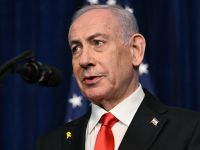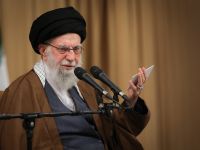Iraq has accepted the renewal of the UN oil-for-food accord for another six months, clearing the way for a resumption of crude exports suspended since December 1, the official news agency INA announced Monday.
"Iraq agrees to the renewal of the humanitarian programme for a period of six months," Foreign Minister Mohammad Said al-Sahhaf wrote in a message to UN Secretary General Kofi Annan, INA reported.
The programme launched in December 1996 allows sanctions-hit Iraq to export crude in sixth-monthly phases to finance imports of essential goods for its 22-million population.
The eighth phase of the programme ran out last week but liftings were suspended on December 1 in a dispute over a pricing formula for Iraqi exports.
The United Nations said Friday that its oil overseers had resolved the dispute after the Security Council approved a renewal on December 5.
Sahhaf, in his message, kept up Iraq's criticism of the programme. "It is clear that the countries which exercise hegemony over the Security Council are behaving as if the oil-for-food programme were an alternative to the lifting of sanctions," in force since Iraq's 1990 invasion of Kuwait, he said.
He slammed as "negative and unbalanced" the latest renewal until June 2001 under Security Council resolution 1330.
Iraq decided to go ahead with the programme to "avoid any misinterpretation of its position as not being positive and to uncover the ill intentions of certain parties," the foreign minister said.
Sahhaf was referring to the United States and Britain, which are strongly opposed to Iraqi efforts to take control of its oil revenues.
In resolution 1330, the Security Council agreed in principle to release up to 600 million euros ($540 million) of the income in cash from a UN-controlled escrow account to train and pay maintenance workers in Iraq's oil industry.
The resolution also improved the UN's vetting procedures to speed up the delivery of supplies.
In another modification, the Security Council formalised an earlier decision to reduce from 30 to 25 percent the proportion of the oil revenues that goes into a compensation fund for victims of the invasion of Kuwait.
With the agreement on the ninth phase of the programme, liftings of Iraqi crude could now start immediately, said the Middle East Economic Survey (MEES), adding that five tankers were waiting at the Gulf port of Mina al-Bakr.
It also reported Monday that although the United Nations rejected Iraq's original pricing formula that allowed for a 50 cent per barrel surcharge, Baghdad would continue to benefit from unofficial payments.
Several companies discreetly started in October and November to pay at least 10 cents per barrel directly to Iraq, outside the escrow account, according to the industry newsletter.
"It is expected that the 10-25 cents a barrel premium that was charged before the latest crisis will continue and this has already been factored in by the companies," said MEES.
It also said Baghdad was set to continue US-bound exports through third parties, despite a threat to blacklist companies that supply Iraqi crude to its enemies under the UN programme.
Iraqi oil exports to Syria outside the programme started on November 20, according to MEES.—AFP.
©--Agence France Presse.
© 2000 Mena Report (www.menareport.com)







